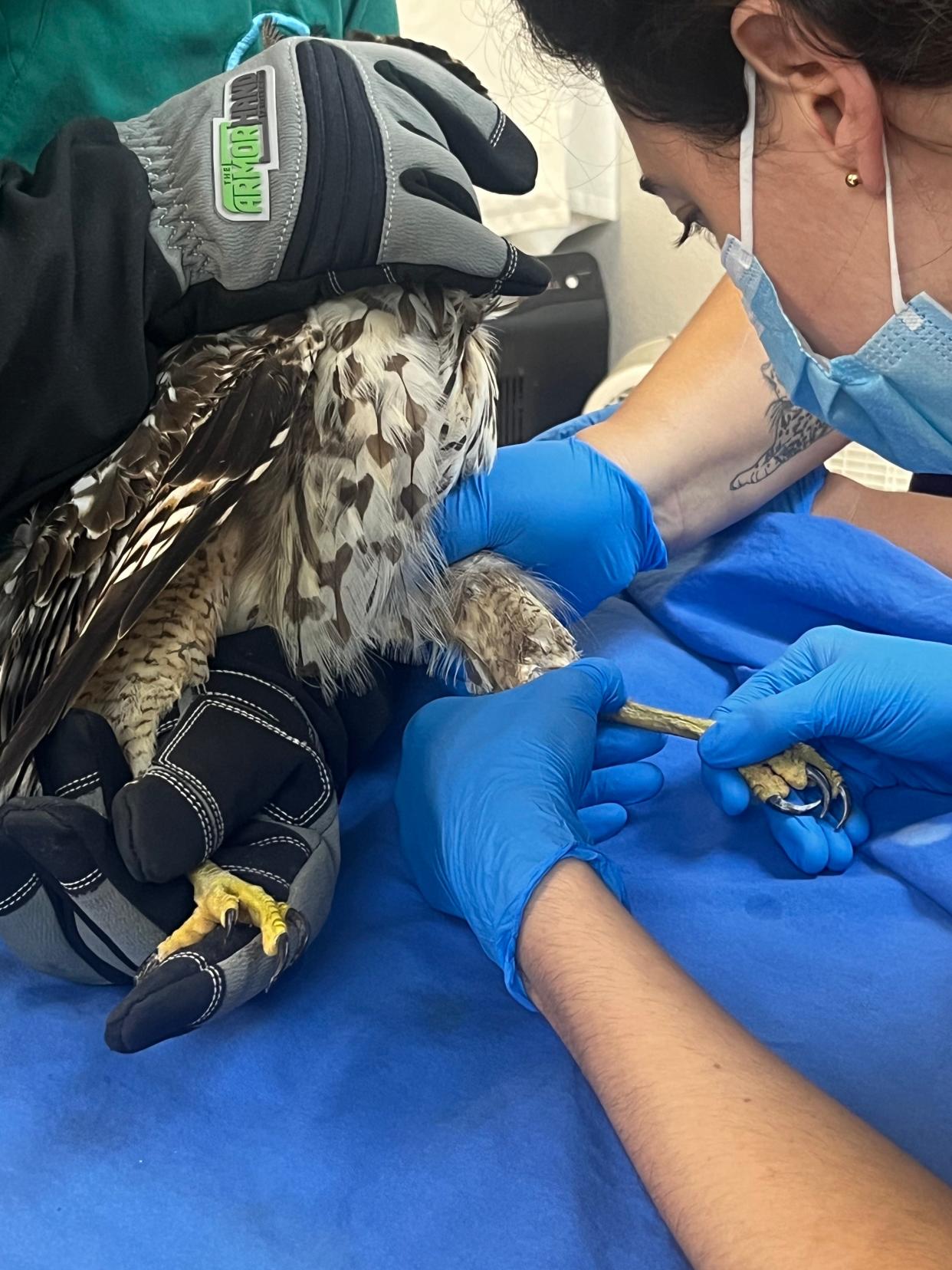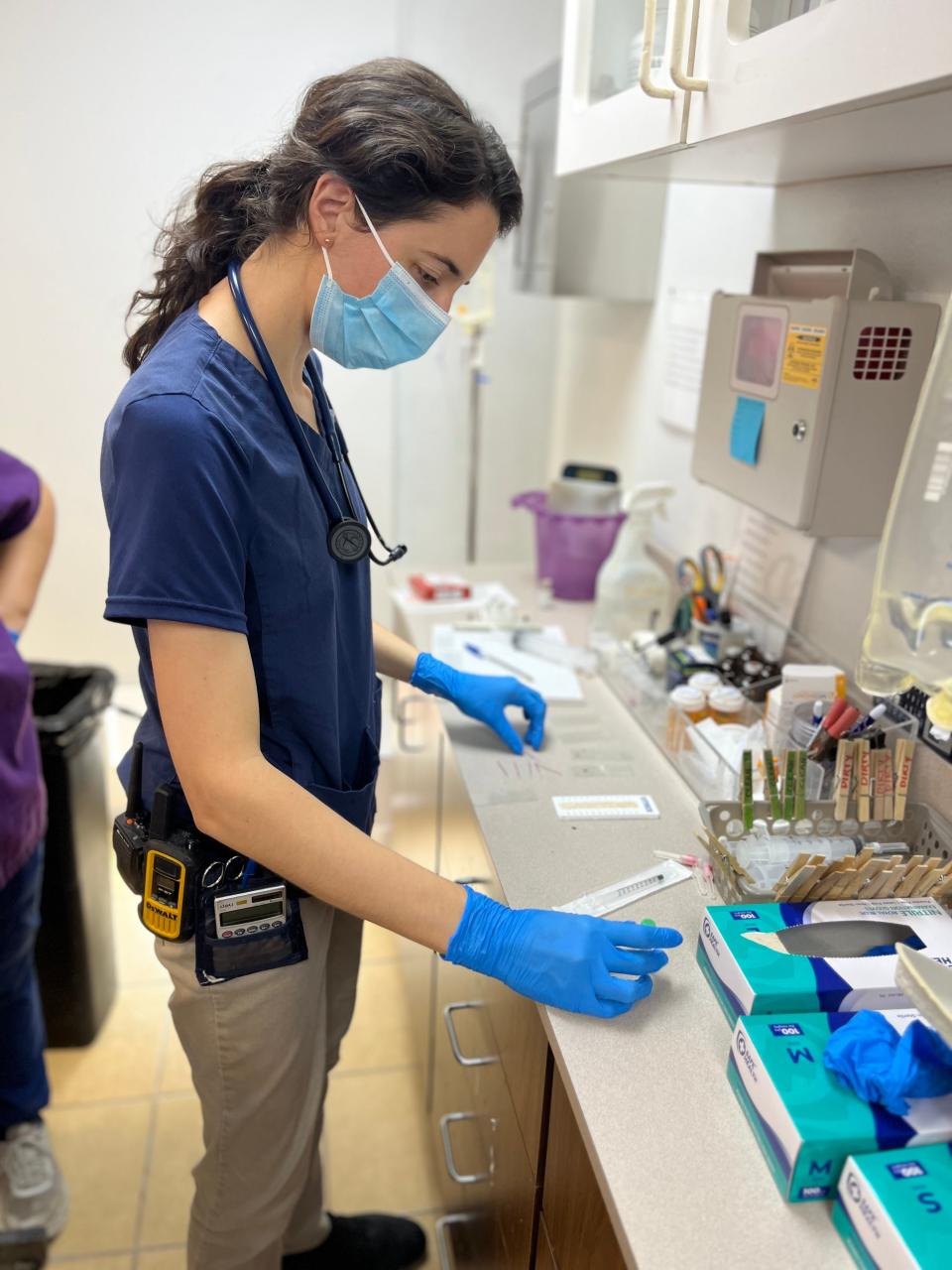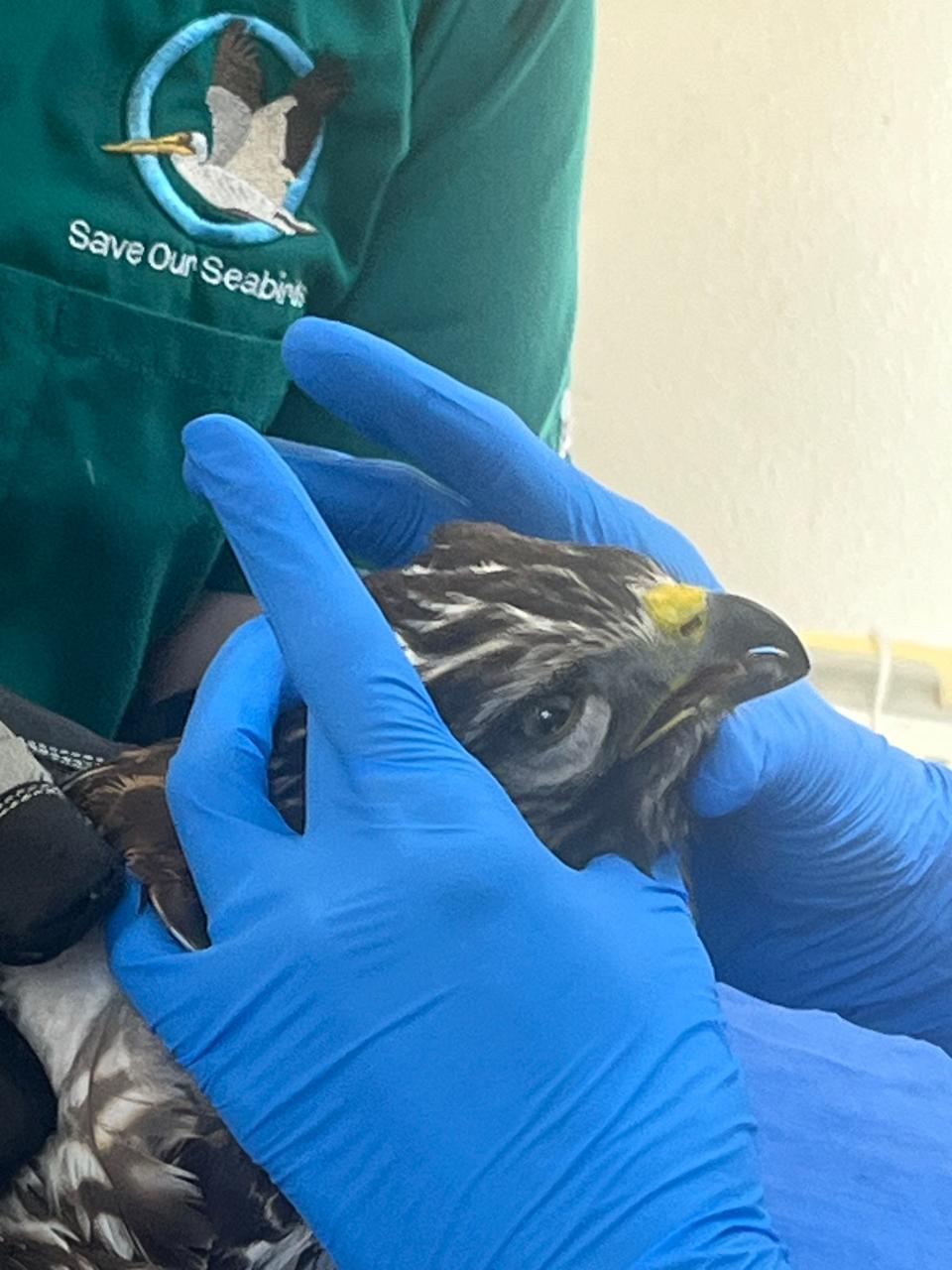For birds of prey, use of rat poison near homes, businesses can have tragic consequences

Poisons intended to kill rodents around homes and businesses are contributing to the deaths and critical illnesses of birds of prey in Sarasota and Manatee counties, experts say.
The toxins don’t kill rats or mice immediately, but rather allow the animals to linger long enough to be eaten by an eagle, hawk or other predatory bird – which in turn makes them sick, often critically.
Dr. Maria Passarelli, a veterinarian at Save Our Seabirds, said she has received approximately 30 birds this year with suspected rodenticide poisoning, including about 20 red-tailed hawks. Passarelli estimates a survival rate of 30-50%. One hawk was recently released by SOS after successful treatment.
Kylie Wilson, a volunteer with the Sarasota Audubon Society since 2018, said the organization in recent years has observed sudden declines in the health of eaglets hatched in a Lido Key nest prior to their deaths.

“We had photographers who would capture photos of the adults bringing in rats to the nest,” Wilson said. “Shortly after, the young, which were perfectly healthy and developing normally, all of a sudden, were dead.”
Wilson received permission from the U.S. Fish and Wildlife Service to ask a specialist to retrieve the eaglet and perform a necropsy, which confirmed the suspicions of rodenticide poisoning.
“We were finally able to say, ‘We know that rodenticide was present in this eaglet’ when it died,” Wilson said. “This is a recurring problem that’s been happening on Lido Key, (but) it’s certainly not happening only on Lido Key.”
The rat poison primarily affects birds of prey, such as eagles, hawks, great horned owls, and other birds that eat rodents as a main food source.
Dr. Cynthia Hopf-Dennis, an assistant clinical professor of wildlife medicine in the Department of Clinical Sciences at Cornell University, has published research on red-tailed hawk exposure to rodenticide. According to Hopf-Dennis, the most common types of rodenticide to affect birds are anticoagulants or neurotoxins, causing anemia and disorientation.
The toxins prevent normal blood clotting, putting birds at a higher risk of internal bleeding when they experience trauma, or even spontaneous internal bleeding.

“If we suspect anticoagulant rodenticide, the birds are usually pretty severely anemic and have a poor prognosis for response to treatment, which usually includes a blood transfusion if available, along with vitamin K to support clotting,” Hopf-Dennis said. “Unfortunately, the prognosis for the neurotoxic rodenticides is also poor.”
Wilson, through the Sarasota Audubon Society, recently reached out to the Lido Key Residents Association to share information.
“The nest we observe is a pretty publicly viewable nest, right off a trailhead. A lot of people are usually invested in the (eaglets’) success, and step one is getting people interested enough to care and then try to spread the right information,” Wilson said. “We want to make sure that for the fourth year in a row, we don’t lose more eaglets.”
Wilson has also worked to inform shopkeepers around St. Armands Circle, with mixed results.
“(I’m) just trying to spread the information widely and educate people that there is this impact,” Wilson said. “But following up to try and make sure that these rodenticides aren’t even allowed to be used, I feel that’s really got to be the next measure … As long as pest control companies have them available, they’re going to continue to be used.”
Hopf-Dennis suggests that modification of homes and buildings to prevent access by rodents, as well as better management of food sources such as trash, bird seed, and other items, would lessen the need for rodenticides.
Catherine Hicks is a reporter for the Community News Collaborative. She can be reached at chicks@cncfl.org.
This article originally appeared on Sarasota Herald-Tribune: What is causing the sudden decline in health of eaglets on Lido Key?

